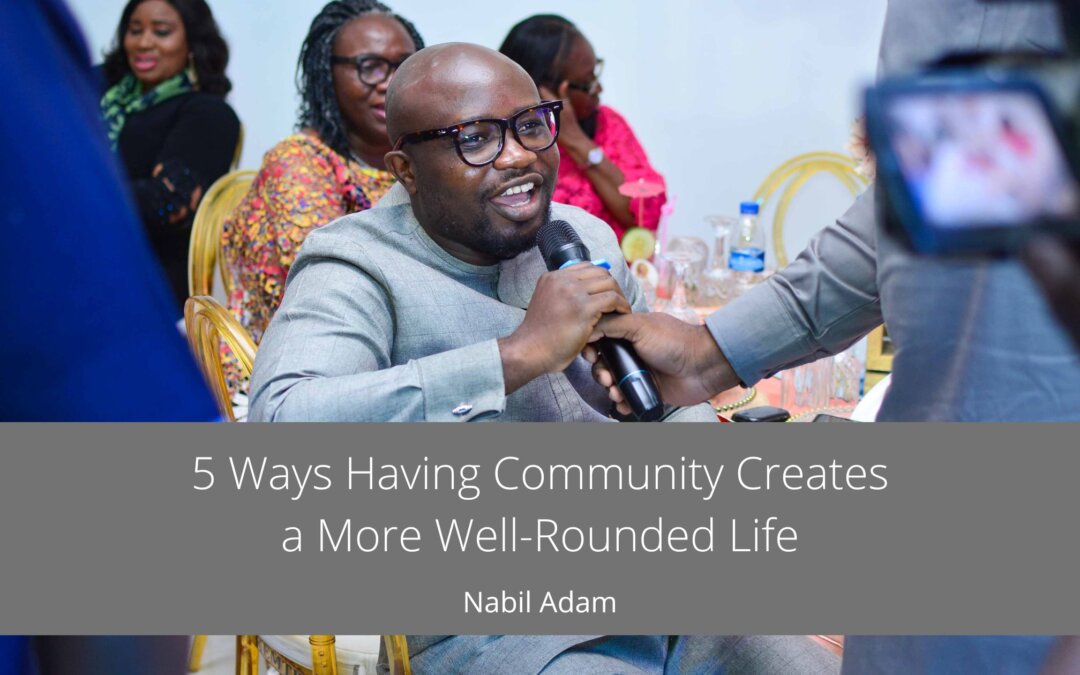Humans are inherently social creatures, and our need for community is deeply ingrained. Having a strong sense of community enriches our lives in ways that extend beyond mere social interactions. It fosters personal growth, emotional well-being, and overall happiness.
Emotional Support and Connection
One of the most significant benefits of having a community is its emotional support during challenging times and moments of celebration. Being part of a community allows individuals to share their joys and sorrows with like-minded individuals who genuinely understand and empathize with their experiences. Whether through close friends, family, or a more extensive social network, having a community ensures that no one faces life’s struggles alone. Emotional support nurtures mental resilience and helps individuals cope with stress, anxiety, and uncertainties, fostering a healthier state of mind.
Diverse Perspectives and Growth
A community is a melting pot of diverse perspectives and experiences. Interacting with people from various backgrounds exposes individuals to new ideas, beliefs, and cultures. Embracing these diverse viewpoints enhances personal growth and promotes open-mindedness. Engaging in respectful dialogue and exchanging ideas with others encourages critical thinking and broadens one’s understanding of the world. This diverse perspective enables individuals to see beyond their limited viewpoints, promoting empathy, compassion, and a deeper appreciation for the richness of human diversity.
Personal Development and Skill Building
Communities often offer opportunities for skill development and learning. Whether through formal educational programs, mentorship initiatives, or casual knowledge sharing, community involvement encourages individuals to pursue their passions and interests. Community members’ collective expertise and encouragement create a conducive personal growth and skill-building environment. As individuals develop new abilities and refine existing ones, they experience a sense of accomplishment, boosting their self-confidence and overall well-being.
Increased Social Engagement and Well-Being
Community participation provides ample opportunities for social engagement, which is essential for maintaining good mental and emotional health. Regular social interactions can reduce loneliness and isolation, promoting a sense of belonging and acceptance. Engaging with others in various activities, events, and gatherings fosters a sense of camaraderie and friendship. Such connections are essential in combating alienation and promoting overall happiness and well-being.
Collaborative Problem-Solving and Supportive Network
Communities serve as a platform for collaborative problem-solving and resource-sharing. When individuals face challenges or seek advice, having a supportive network to turn to can be invaluable. In a community, people can pool their knowledge, skills, and resources to find innovative solutions and offer assistance when needed. This collective effort not only alleviates individual burdens but also strengthens the fabric of the community itself.
A strong sense of community profoundly impacts our lives. Emotional support and connection offer a safety net during difficult times, while diverse perspectives foster personal growth and open-mindedness. The opportunity for skill-building and personal development empowers individuals to pursue their passions, leading to greater self-confidence and fulfillment. Social engagement and a supportive network combat loneliness and foster a sense of belonging. Embracing the community through local groups, online networks, or broader social circles creates a more well-rounded and enriching life.
As we recognize the inherent value of community, it becomes essential for individuals to seek and nurture these connections actively. By investing in meaningful relationships and contributing to the well-being of others, we not only enhance our own lives but also contribute to the collective strength and resilience of our communities.

